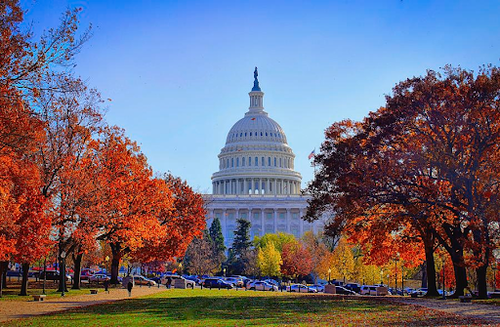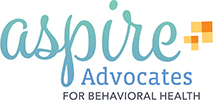Parity Continues To Be A Problem- Aspire Advocates is Working to Find Solutions
Federal Agencies Submit Report to Congress on Parity
By Shalini Wickramatilake, MHS

Recently, the U.S. Departments of the Treasury, Labor (DOL), and Health and Human Services (HHS) released their 2022 Mental Health Parity and Addiction Equity Act (MHPAEA) Report to Congress.
This report indicates that health insurers are failing to deliver parity for mental health (MH) and substance use disorder (SUD) coverage for their beneficiaries.
The report also describes the federal government’s efforts to better enforce MHPAEA, and offers recommendations on how to strengthen parity implementation.
The Mental Health Parity and Addiction Equity Act (MHPAEA) of 2008 requires health insurance companies that cover both mental health/substance use disorder (MH/SUD) and medical/surgical services to cover MH/SUD services in a manner that is no less restrictive than medical/surgical services. This parity requirement applies to both quantitative (e.g. number of visits, number of days) and non-quantitative (e.g., prior authorization, proof of medical necessity) treatment limitations (NQTLs). The impetus for the passage of MHPAEA was higher out-of-pocket spending requirements and more stringent treatment limitations for MH/SUD benefits. Despite the intent of this legislation in reducing discrimination and barriers to care for individuals in need of MH/SUD care, challenges remain to full implementation of the law, and young people with mental health and substance use disorders still face barriers to coverage.
In 2020, through the Consolidated Appropriations Act, lawmakers required insurers to perform and document comparative analyses of MH/SUD vs. medical/surgical NQTLs by February 2021. As described in the new report to Congress, many insurers were not prepared to submit their comparative analyses in time for the deadline. Those who did submit comparative analyses did not offer substantive or meaningful comparisons between health coverage for MH/SUD vs. medical/surgical care. As described in the report, “None of the comparative analyses… reviewed to date contained sufficient information upon initial receipt.” DOL has issued letters to 80 health insurance plans outlining deficiencies in the comparative analyses they submitted. Additionally, DOL found that 48 NQTLs imposed on MH/SUD benefits violated parity requirements.
The findings of this report are not surprising and still very disappointing, especially given the rising rates of mental health and addiction issues during the pandemic, and the critical need to help individuals access care.
In particular, young people with mental health and/or substance use disorders need to have ample insurance benefits to ensure access to services during a particularly vulnerable time in their life.
The federal government must have the authority to enforce compliance with MHPAEA, including issuance of fines to health plans for parity violations.
What Parity Issue is Aspire
Advocates Tackling?
Dialectical Behavior Therapy (DBT) is not fully covered by private insurance or Medicaid. For many Missouri residents, this is a “cash pay” service. This violates the Mental Health Parity and Addiction Equity Act of 2008. What is Aspire Advocates doing?
- We are working with MO Senator Razer to draft and bill that requires DBT to be covered by insurance. The bill will also establish certification standards.
- We are working with The Kennedy Forum to get the issue addressed at the Federal level, including exploring the idea of getting a CPT code specifically for DBT Therapy.
- We are acting as a “Consumer Advocate” with the DBT national certification organization called DBT-LBC.
- We have reached out to US Representative Ann Wagner’s office to see if she can be of assistance with federal legislation.
What Can You Do?
Become an Advocate! All this requires is opting in to receive legislative alerts by text. Your voice can help save lives! It only takes a few minutes to reply to a legislative alert.


